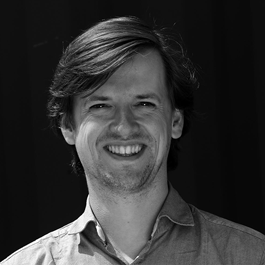
Executive Lead for Systemic Initiatives
Ellen MacArthur Foundation
Accelerating the transition to a circular economy
“You can visualize the current global economy as this massive, one-way conveyor belt. At the beginning of the belt you have a heap of finite resources, and the world goes through these at an ever-faster pace. At the end comes out waste and pollution. By design, this system leaves trillions of dollars of value on the table.”
Rob Opsomer thinks a lot about the economy—devising ways to make it work better for business, people, and the environment. A 2013 graduate of Northwestern University’s Kellogg School of Management, he is now the executive lead for systemic initiatives at the Ellen MacArthur Foundation. With headquarters in the United Kingdom and operations throughout the globe, the Ellen MacArthur Foundation is one of the world’s most prominent thought leaders that’s accelerating the transition to a circular economy. To accomplish this objective, the Foundation works collaboratively with an international network of distinguished industry partners, governments, NGOs, and universities.
But what is a circular economy, and how does it differ from the status quo? Simply put, a circular economy redesigns the linear, one-way conveyer belt Opsomer describes, eliminating waste while keeping products and materials in use and regenerating natural systems.
When people are first introduced to the concept of a circular economy, they often think it’s all about recycling, says Opsomer. While recycling is one piece of the puzzle, the idea of shifting to a circular economy goes well beyond this one aspect.
“It’s about rethinking business models, product design, material choice, and broader economic systems,” he says. “It’s about redesigning the way we make and use everything.”
For example, one of the Ellen MacArthur Foundation’s large industry partners had previously been in the business of producing lightbulbs. Within the traditional linear economic model, the company is not incentivized to design its bulbs to last. In fact, the opposite is true—its profits are likely to grow as its lightbulbs fail or break and customers purchase replacements. However, the company has transformed its business model and now sells light instead of lightbulbs.
“They now sell their customers light by the hour, which means they want their light bulbs to last as long as possible so they don’t need to replace them when they break down. They redesigned their product and business around a circular economic model,” says Opsomer.
He stresses that the circular economy is not only about doing what’s right for people and the planet—it’s also about spurring ingenuity to capture economic value.
“This is a multi-trillion-dollar business innovation opportunity,” he says. “All of the materials, assets, and utility that get wasted in the current system have a dollar value. The circular economy allows us to capture that value, while also helping solve many of the global challenges we currently face.”
Opsomer points to climate change as one example, citing the emission reduction targets outlined in the landmark Paris Climate Agreement which aims to reduce global greenhouse gas emissions in an effort to limit the global temperature increase to 2 degrees Celsius.
“A lot of the debate around climate change [mitigation] has focused on the clean energy transition… but that only gets us to about 55% of targets set out in the Paris Agreement. The other 45% relates to how we make and use products and how we produce foods,” he says.
By keeping products in use for a longer period of time, there will be a reduced need to mine natural resources and produce new materials. Likewise, agricultural systems can be designed to more effectively sequester carbon dioxide into the soil.
“[The circular economy is] about rethinking business models, product design, material choice, and broader economic systems. It’s about redesigning the way we make and use everything.” — Rob Opsomer (KSM '13), Executive Lead for Systemic Initiatives at the Ellen MacArthur Foundation
“By applying circular principles, you keep all of that energy in a closed-loop system… You increase the return on invested energy,” he says.
Opsomer’s work at the Foundation doesn’t stop at climate change. He has played a leading role in the New Plastics Economy initiative, which has mobilized more than 1,000 organizations—including companies representing 20% of all plastic packaging produced globally—to drastically reduce plastic pollution by the year 2025.
“Pretty much everything I learned at Northwestern is relevant for the work that I do today,” Opsomer says. “I use skills like strategy, coaching, leadership, and finance as we try and transform industries and ultimately the nature of the entire global economy.”
To Northwestern graduates looking to learn from his career path, Opsomer suggests working outside of the circular economy arena to gain a broader perspective.
“Whether you’re into marketing, finance, product design, policy making, or you name it, there’s a role for everyone to play... My advice is to work for a couple of years in a regular environment, and then switch to something more mission-oriented or circular economy-focused. It can help you become really good at what you do, provide a broader perspective, and connect with other people.”